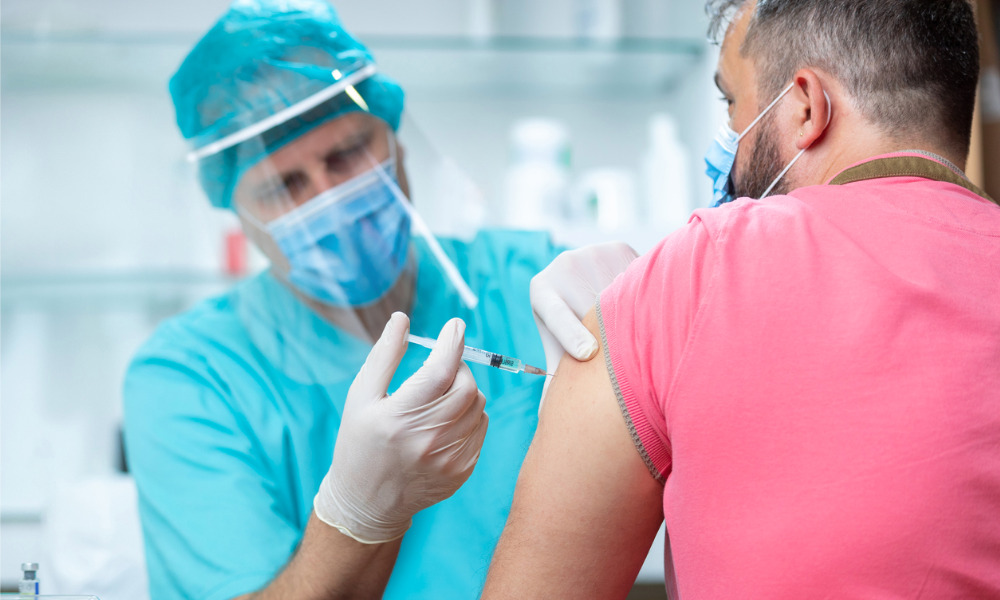Although the bank hasn't mandated the jabs so far, an internal survey shows most employees would support it

National Australia Bank is mulling mandated vaccinations for its employees after a staff survey found that more than two-thirds supported the idea.
In an email to the ban’s 31,000 employees, NAB chief executive Ross McEwan said 71% of 11,000 survey respondents supported mandatory vaccination, The Australian reported.
While McEwan said the bank wasn’t currently considering the measure, “as the COVID situation evolves, we need to be thinking about whether further measures are warranted to keep our colleagues and customers safe.”
The survey also found that two thirds of respondents found the current situation – with half the nation in COVID-related lockdowns – “quite challenging,” The Australian reported.
Respondents cited a lack of social contact, movement restrictions and the inability to attend activities outside their homes.
McEwan acknowledged the lockdowns’ negative effects, pointing out that Victorians had been locked down for more than 215 days, and New South Wales was in its 10th consecutive week of restrictions.
However, he said the national cabinet’s plan offered a ray of hope. The plan calls for restrictions to ease when 70%-80% of eligible Australians were vaccinated.
That mark is now “in sight,” McEwan said. At the current rate, more than 80% of eligible Australians will have their first jab by the end of the month, and be fully vaccinated by mid-November, The Australian reported.
“We have a light at the end of the tunnel,” McEwan said.
Read next: How COVID will change entrepreneurs
The NAB boss said that almost two-thirds of the bank’s workforce has received at least one shot, and 40% are fully vaccinated. Of those yet to receive a vaccination, 70% said they intended to, The Australian reported.
McEwan urged unvaccinated NAB employees not to delay, saying that even if they lived outside hot spots, that could change “very quickly.”
“Just ask anyone in Victoria, NSW or New Zealand,” he said.



